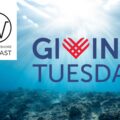If you were in the middle of the ocean, 1000+ miles from land, how would you cope after hearing that a loved one had passed away?
A career at sea means we often miss out on life events at home. Annual events, such as birthday parties and holidays, are perhaps not as difficult to miss knowing that one can celebrate next year. Weddings are often missed as well, so sending well wishes with a gift can be an alternative to attending the big day. We accept missing these events as part of the challenges of a life working on the water.
The big question we want to address here is: How does one deal with the news of a loved one’s death while at sea?
Losing a loved one is hard. Losing a loved one while offshore without having the opportunity to say goodbye or attend the funeral for closure could be considered the hardest aspect of working on the water. Being surrounded by friends and family with the opportunity to gather around food, photos, and memories is not an option for a seafarer hundreds or even thousands of miles away from land.
Today, we explore a few methods for coping with grief and death while working on the water, well-removed from the comforts of home.
- Talk to Someone – If you’re on a ship where you can’t call home or working hours that make reaching someone at home difficult, talk to a crew member about what you’re going through. You may find that this crew member has gone through a similar experience, providing a perspective on how to manage grief at sea.
- Focus on the Good Times – There are most likely fond memories you have with the person who passed. Cherish those, remembering the experiences and love you shared.
- Make Plans – Focus on what you can do; make plans for when you arrive on land. Whether it’s visiting the grave of the deceased or a favorite place that reminds you of the person who passed, you may find that making plans will give you something to look forward to and make you feel better.
- Look Up the Company’s Leave Policy – Some companies provide time off for an employee who has experienced a family member’s death. Talk to your supervisor or contact your HR department to find out how they can help you – perhaps at the next port of call, you can fly home for a period to be with loved ones.
- Take Time to Grieve – Grief is a many-staged process, from denial to acceptance, and will take time to process. Sometimes this can take months, sometimes acceptance comes sooner. But find an outlet for your grief, whether that is in writing, prayer, conversation, meditation, or another way to find peace.
- Be Kind to Yourself – If you’re having negative thoughts towards yourself and your career, be kind and try to frame your inner dialogue as if you’re talking to a friend. You chose this career for some great reasons. Trust that, knowing that you’ll be surrounded by loved ones soon.
If you found this article after recently losing a loved one, we would like to share this poem with you, in hopes that it will bring you some solace.
“Gone From My Sight”
by Henry Van Dyke

I am standing upon the seashore. A ship, at my side,
spreads her white sails to the moving breeze and starts
for the blue ocean. She is an object of beauty and strength.
I stand and watch her until, at length, she hangs like a speck
of white cloud just where the sea and sky come to mingle with each other.
Then, someone at my side says, ‘There, she is gone’
Gone where?
Gone from my sight. That is all. She is just as large in mast,
hull and spar as she was when she left my side.
And, she is just as able to bear her load of living freight to her destined port.
Her diminished size is in me – not in her.
And, just at the moment when someone says, ‘There, she is gone,’
there are other eyes watching her coming, and other voices
ready to take up the glad shout, ‘Here she comes!’
Have you lost a loved one while at sea? What were your coping mechanisms?
Please share with us in the comments below.







This article and the accompanying poem are so lovely. And these same concepts can apply to people experiencing barriers to travel of all kinds: financial, familial, etc.
The only piece I would add would be considering a ritual of one’s own whether it be the classic “message in a bottle”, pouring out a drink to the deceased, talking to the stars, etc. Having something tangible to do can really help.